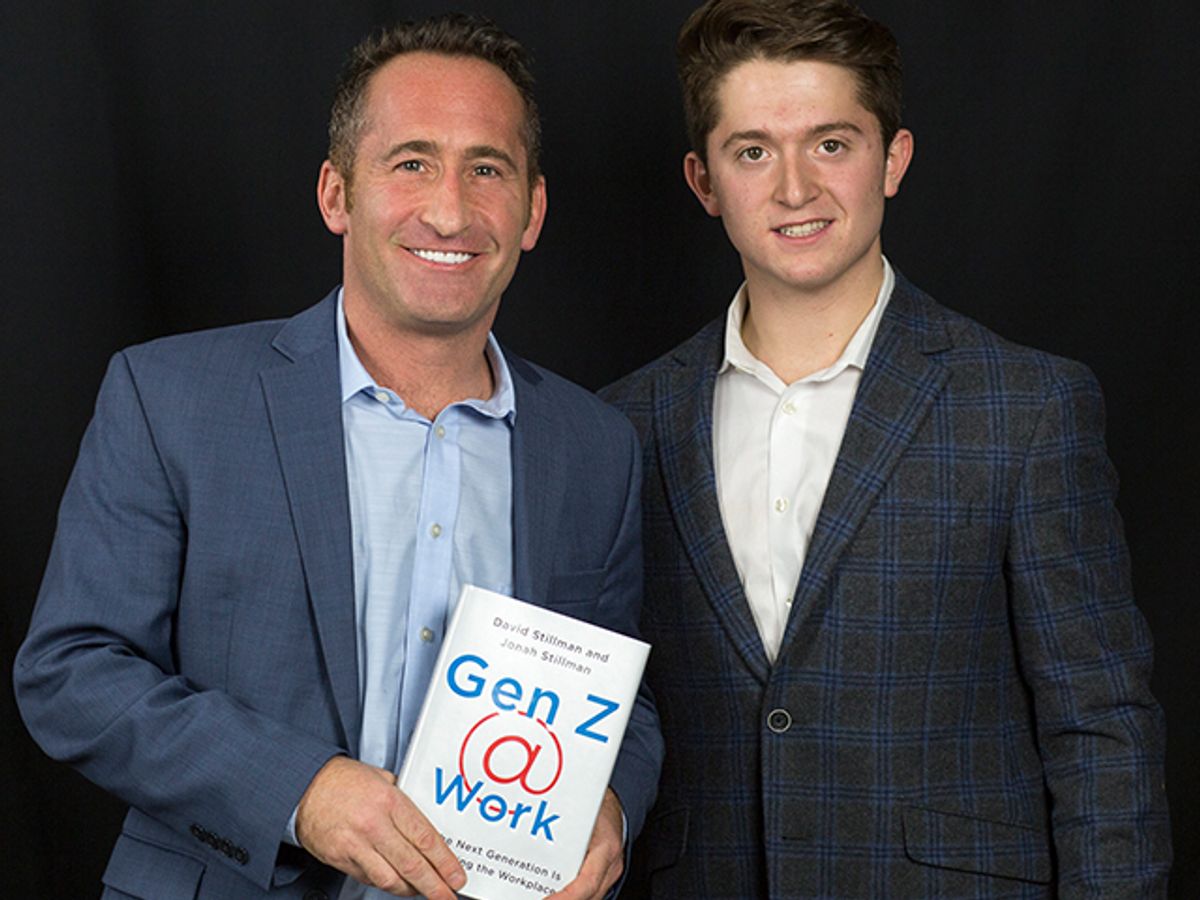There are many books, documentaries and think pieces covering the millennial generation. Now the national dialogue may soon shift to the rise of “Generation Z,” or those born roughly between 1995 and 2012.
David Stillman is a speaker and author who focuses his research on generational gaps. His past books include "When Generations Collide" and "The M-Factor: How the Millennials Are Rocking the Workplace." He has a new book out, "Gen Z @ Work," which is co-authored by his son, Jonah, himself a “Gen Z-er.”
As David said, “The leading edge of Gen Z is graduating college this spring, and at 72.8 million strong, they really are going to be different.”
I sat down with this father-son author duo to get their insights and predictions on how the work force will change when “Gen Z” arrives.
Jonah says the most noticeable difference between millennials and Gen Z is the collaborative versus private mindset. “Millennials are the most collaborative generation there is . . . they were told that if they worked together and they work hard, everything is gonna be all right.”
Jonah and David say Gen Z workers will be different, and this is likely to affect every aspect of the workplace, down to the physical setup. As David explains:
So take something like office space: what have most offices done? They’ve gone to an open-office concept. That’s really to appease collaborative millennials. Whereas Gen Z, [is] much more private and independent. Only 8 percent of Gen Z said they want open office concepts. So much so that 35 percent said they would rather share socks than an office space.
David and Jonah predict that office dynamics will shift as this rising generation -- whose younger members are still in elementary school -- enters the workforce.
Jonah's advice to employers is straightforward: “As you realize that we’re not better than the millennials -- we’re not worse than the millennials, we’re just different -- that’s when you’re gonna learn to work with us best.”



Shares